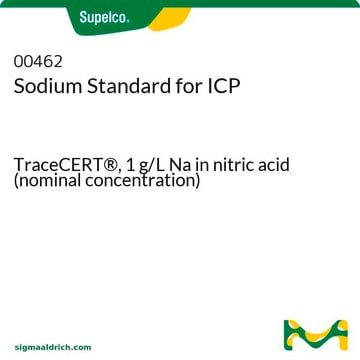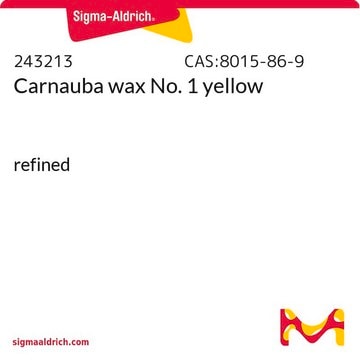GF59456302
Silver
wire reel, 5m, diameter 0.25mm, as drawn, 99.997%
Synonym(s):
Silver, AG005140
Sign Into View Organizational & Contract Pricing
All Photos(2)
About This Item
Linear Formula:
Ag
CAS Number:
Molecular Weight:
107.87
MDL number:
UNSPSC Code:
12141740
PubChem Substance ID:
NACRES:
NA.23
Recommended Products
Assay
99.997%
form
wire
manufacturer/tradename
Goodfellow 594-563-02
resistivity
1.59 μΩ-cm, 20°C
L × diam.
5 m × 0.25 mm
bp
2212 °C (lit.)
mp
960 °C (lit.)
density
10.49 g/cm3 (lit.)
SMILES string
[Ag]
InChI
1S/Ag
InChI key
BQCADISMDOOEFD-UHFFFAOYSA-N
General description
For updated SDS information please visit www.goodfellow.com.
Legal Information
Product of Goodfellow
Storage Class Code
13 - Non Combustible Solids
WGK
WGK 3
Flash Point(F)
Not applicable
Flash Point(C)
Not applicable
Certificates of Analysis (COA)
Search for Certificates of Analysis (COA) by entering the products Lot/Batch Number. Lot and Batch Numbers can be found on a product’s label following the words ‘Lot’ or ‘Batch’.
Already Own This Product?
Find documentation for the products that you have recently purchased in the Document Library.
S R Mueller-Spitz et al.
Letters in applied microbiology, 58(4), 330-337 (2013-11-30)
Polycyclic aromatic hydrocarbons (PAH) are a common environmental contaminant originating from both anthropogenic and natural sources. Mycobacterium species are highly adapted to utilizing a variety of PAH. Silver nanoparticles (AgNP) are an emerging contaminant that possess bactericidal properties, interferes with
Ana López-Serrano Oliver et al.
Environmental pollution (Barking, Essex : 1987), 189, 87-91 (2014-03-20)
Silver nanoparticles (AgNPs) are widely used in many applications and likely released into the aquatic environment. There is increasing evidence that Ag is efficiently delivered to aquatic organisms from AgNPs after aqueous and dietary exposures. Accumulation of AgNPs through the
Swarup Roy et al.
Journal of nanoscience and nanotechnology, 14(7), 4899-4905 (2014-04-25)
Binding interaction of biologically synthesized silver nanoparticles with bovine serum albumin (BSA) has been investigated by UV-Vis and fluorescence spectroscopic techniques. UV-Vis analysis implies the formation of the ground state complex between BSA and silver nanoparticles. The analysis of fluorescence
Cheng-Kuan Su et al.
Toxicology letters, 227(2), 84-90 (2014-04-08)
With the increasing prevalence of silver nanoparticles (AgNPs) in various products, whether such AgNPs will introduce new injury mechanisms from new pathologies remains to be determined. From the toxicokinetic viewpoint, it is vital to have in-depth knowledge of their in
Dawei Guo et al.
Journal of biomedical nanotechnology, 10(4), 669-678 (2014-04-17)
Several studies have suggested that silver nanoparticles (AgNPs) have the potential to treat human cancers, including leukemia. However, the detailed cellular mechanisms for AgNPs to inhibit the growth of leukemic cells and their efficacy on clinical isolates of leukemic patients
Our team of scientists has experience in all areas of research including Life Science, Material Science, Chemical Synthesis, Chromatography, Analytical and many others.
Contact Technical Service




